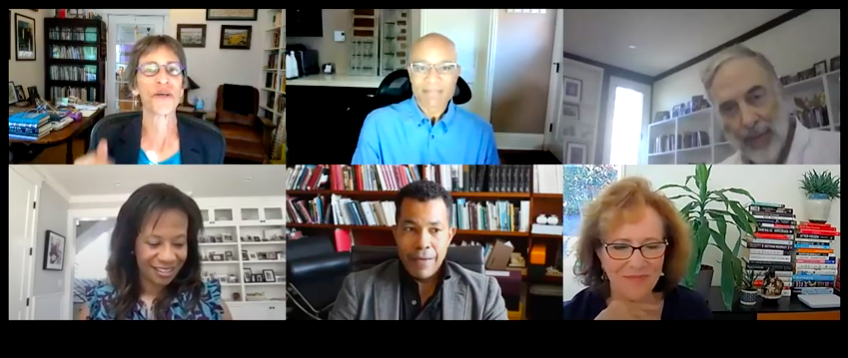Scholars explained their concerns with President Donald Trump’s executive order regarding diversity training, as well as the state of racial inequity and polarization in the United States, and suggested solutions during the Democracy Matters series on Oct. 22.
When asked about President Trump’s recent executive order that limits diversity and implicit bias training, the panelists expressed their opposition to the measure.
“We should be able to recognize that, you know, we’re all a little bit racist, we’ve been made so by our society. Racism is not a bug of the system. It’s a feature of a system that’s so pervasively unequal,” law professor Richard Ford said.
Director of the African and African American Studies Program, Allyson Hobbs, added that she feels “like there are lots of ways that historians and other scholars have to really push back against these kinds of limitations on the way that race is going to be taught and the way that we’re going to think about our history.”
Overall, scholars expressed that further improvements are needed to address racial inequality in the United States. Hobbs explained that some refer to the current social justice movement as the third reconstruction, saying “this reminds us that America is unfinished. It is an ongoing project. This reminds us of how hard and how long people have fought for freedom; our democracy is contradictory and fragile.”
Law professor Richard Banks, and Ford, presented two different obstacles to racial equity: resource disparities and reorienting society.
“I’ve come to think about this problem as that while we have focused a lot on rights, we’ve never focused on resources,” Banks said, explaining that these disparities contribute to inequity and further “the myth of Black inferiority.”
Ford added that though we often think of racism as being an individual issue, it is important to rethink and understand that it is a societal issue.
“What I’d like to suggest is that we could reorient the way we think about confronting racial injustice, to move away from the defined bigot, pinned to the dartboard, and move toward looking at outcome based solutions that deal with the systemic type of injustice in our society,” Ford said.
Psychology professor Hazel Markus said that efforts also need to be made at Stanford to improve diversity and inclusion.
“[When] we’re talking about Stanford, we need time, we need incentives, structured or facilitated experiences that will nudge students, faculty and staff to get out of their comfort zone so they can learn and benefit from this diversity … It needs to be institutionally supported and afforded and incentivized,” Markus said.
On the separate, but related topic of building mutual understanding and combating polarization, professors shared their work. James Fishkin, professor of communication and political science, explained his research on deliberation, saying that real discussions on issues between people can work toward building mutual understanding.
“The deliberative process is an antidote to extreme partisan polarization,” Fishkin said.
The panelists expressed both optimism and fear, but they all felt that addressing race and polarization is crucial to American democracy.
“We need to understand the racial challenges we confront as challenges that are not simply about race, they’re also about the nature of our democracy, its viability and sustainability, the question of whether we can realize our aspirations,” Banks said.
“Those are the stakes of the debate.”
Contact Kirsten Mettler at kmettler ‘at’ stanford.edu.
